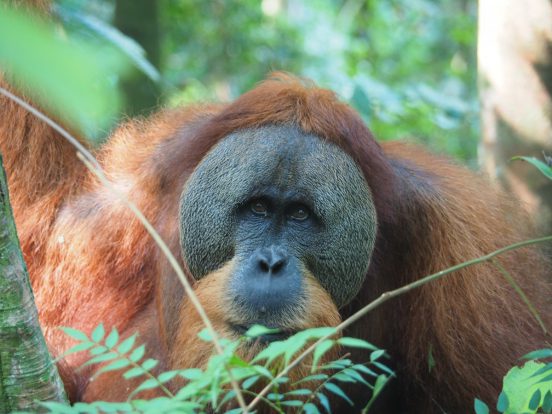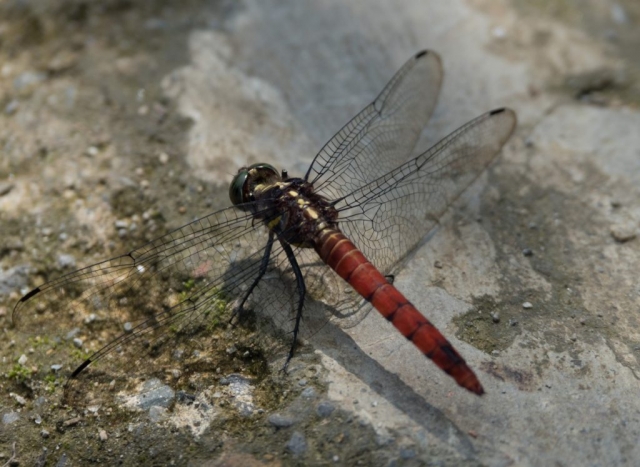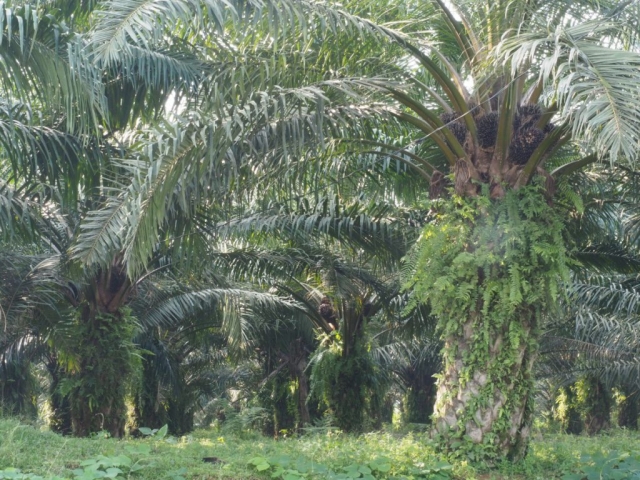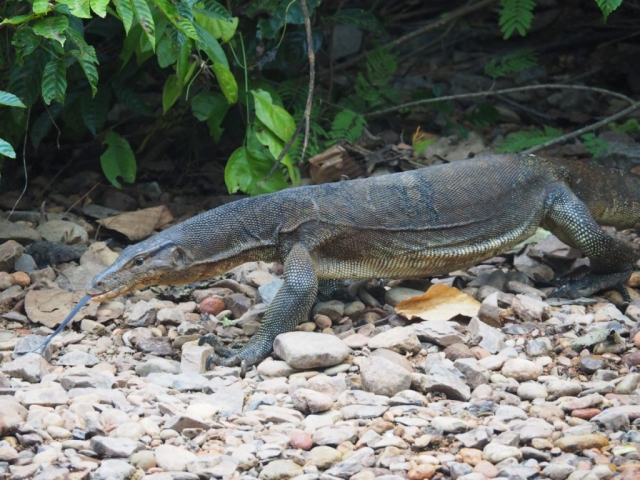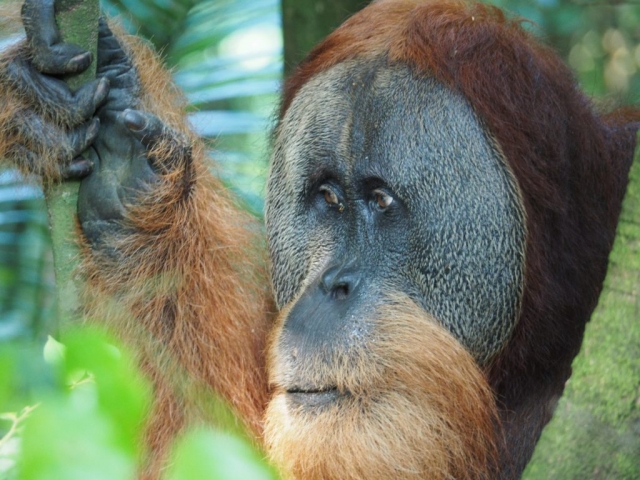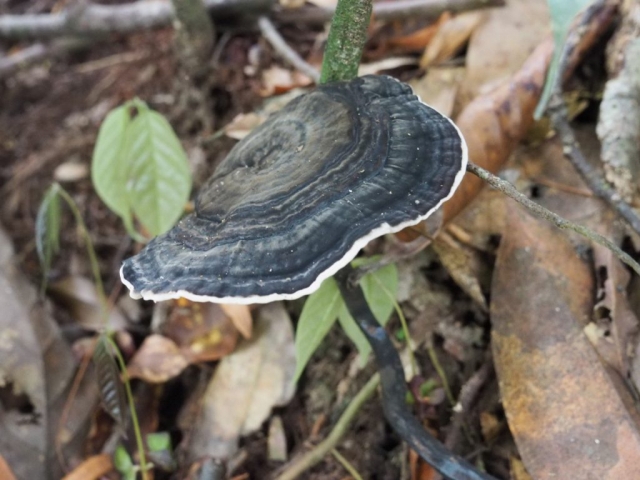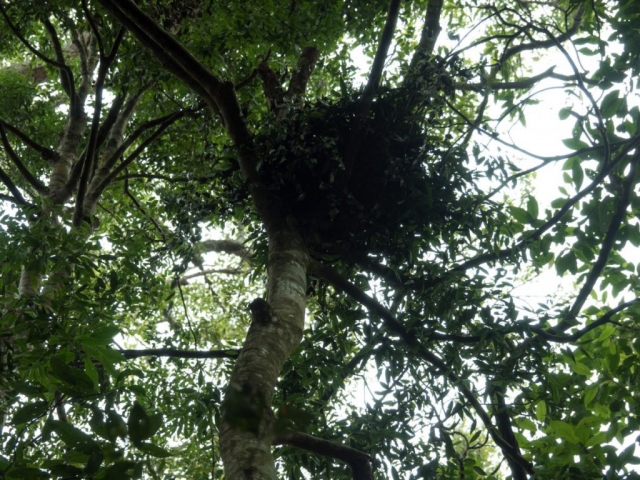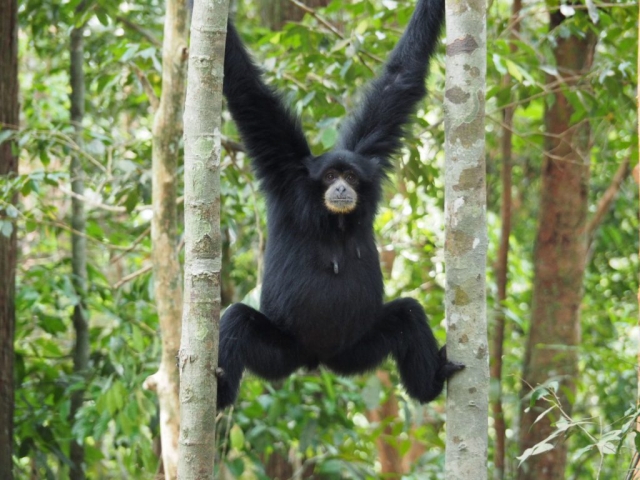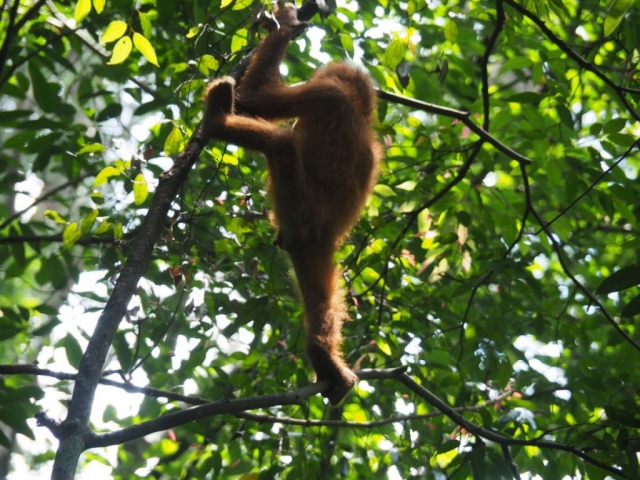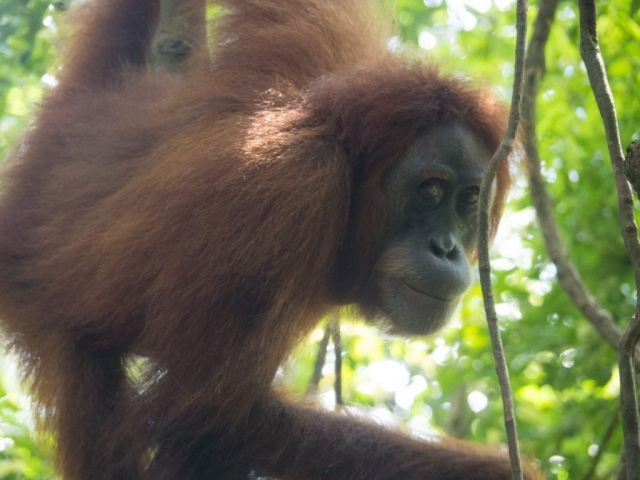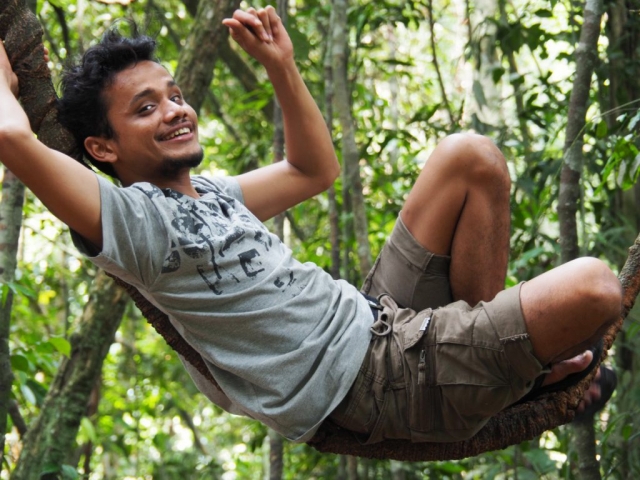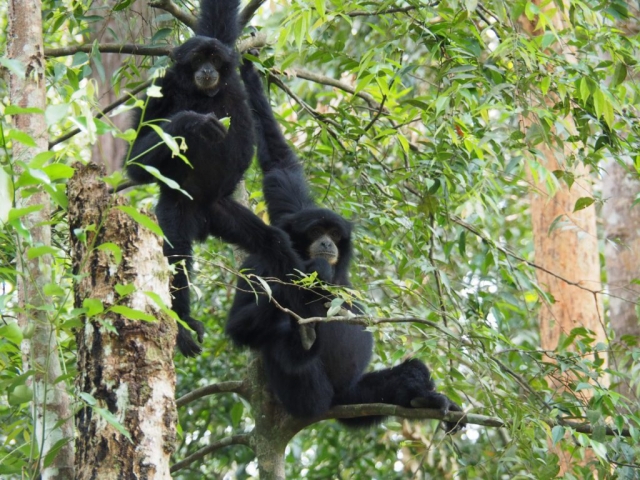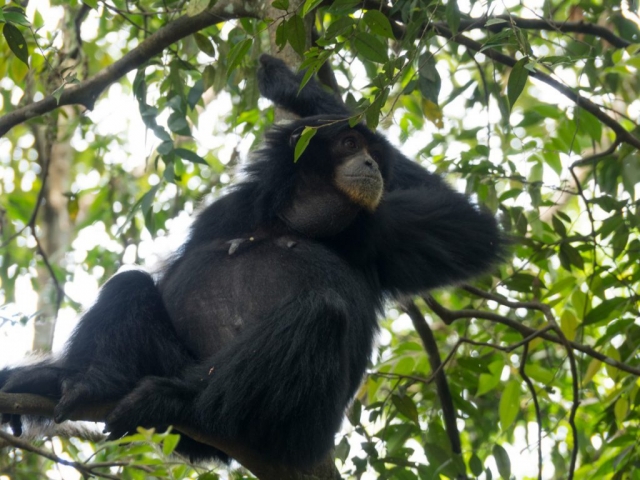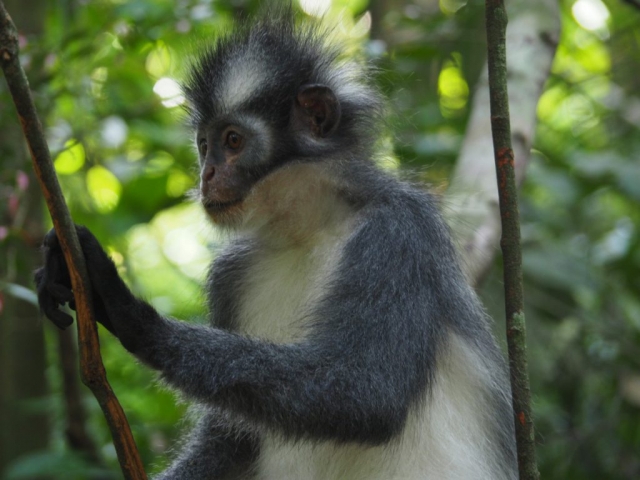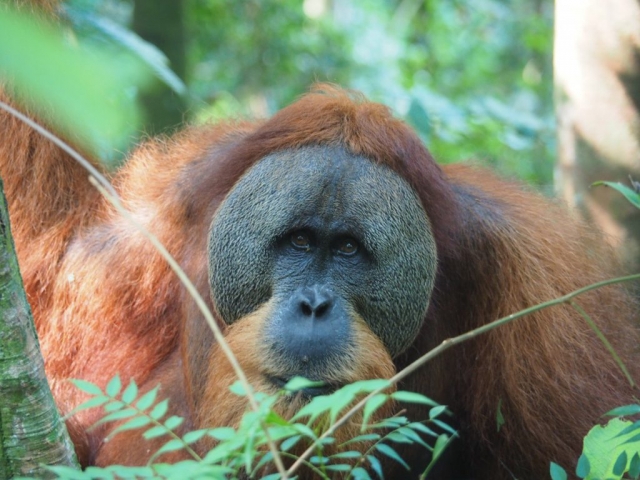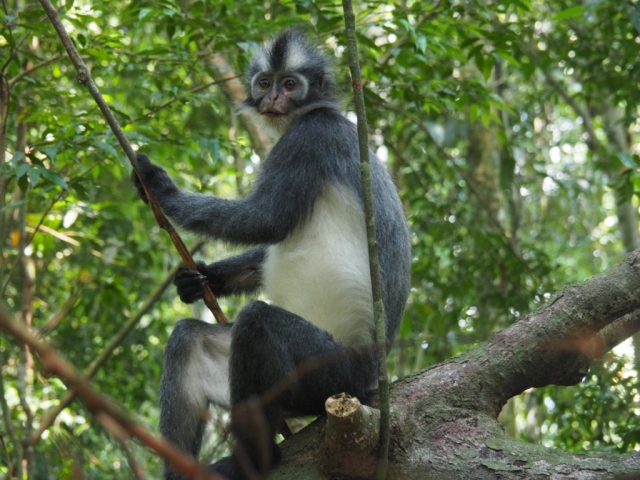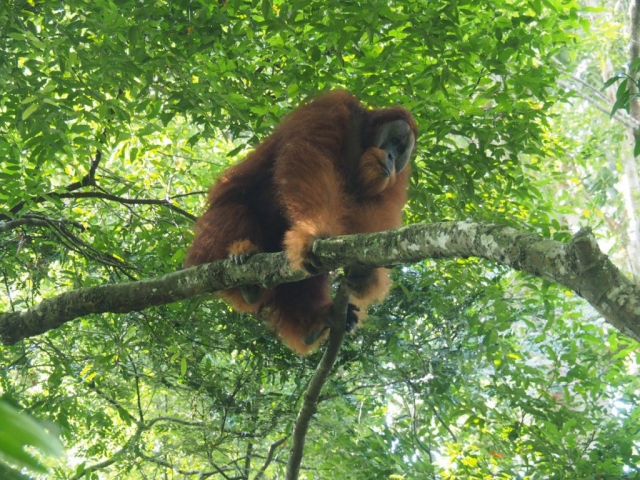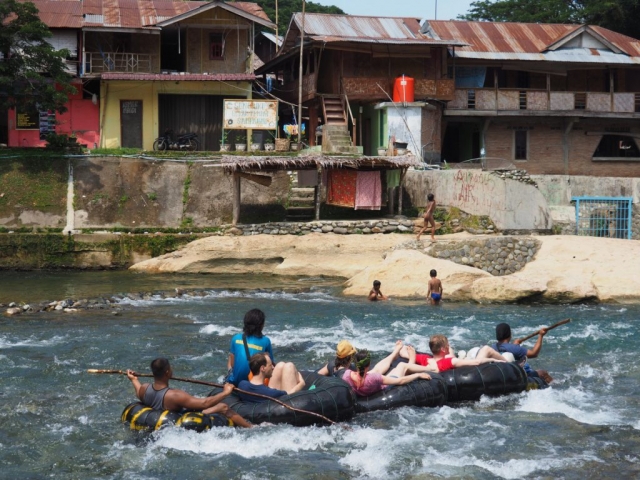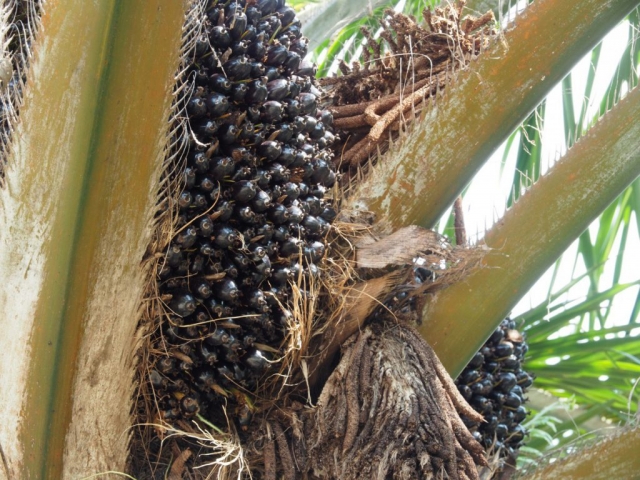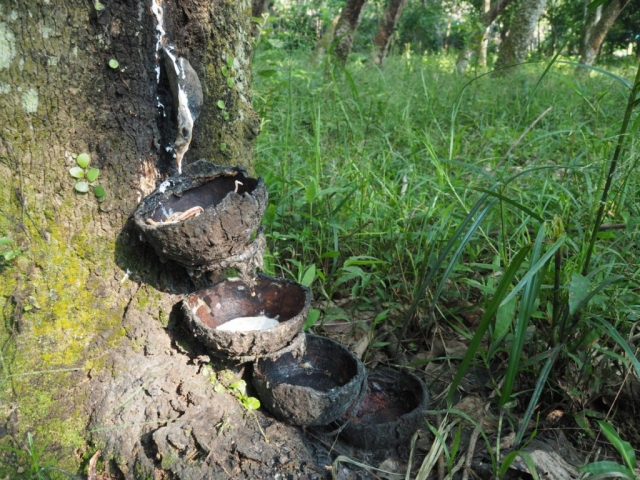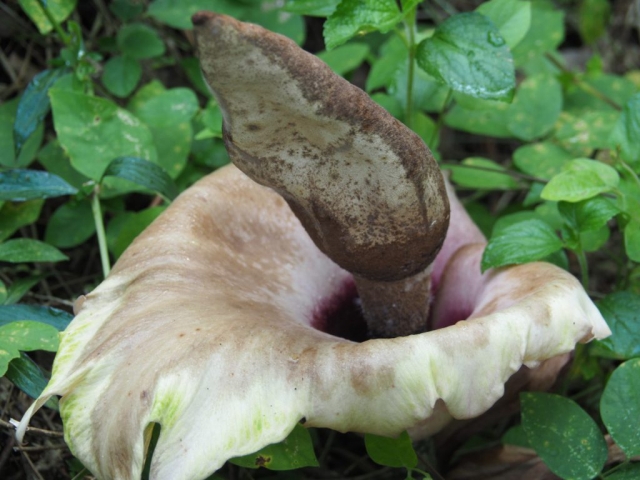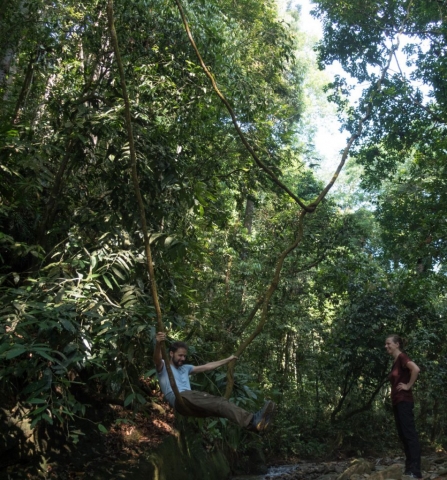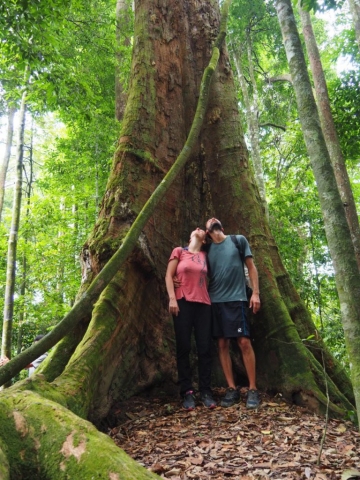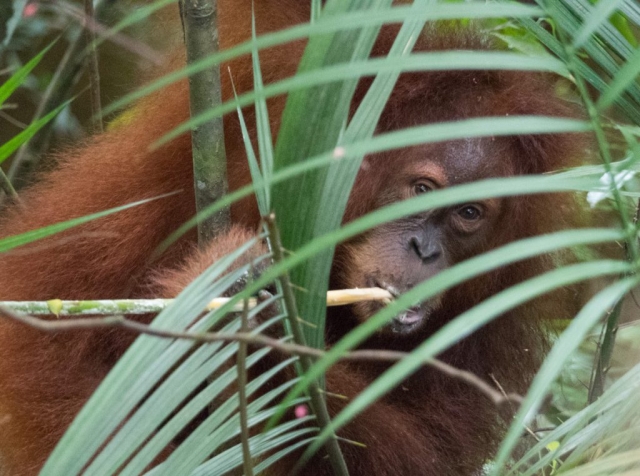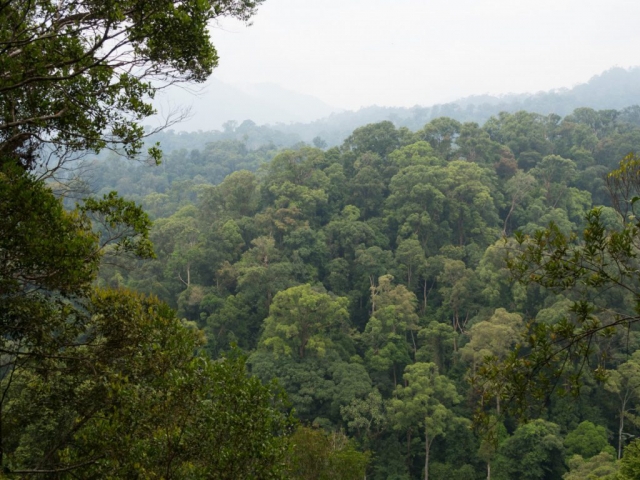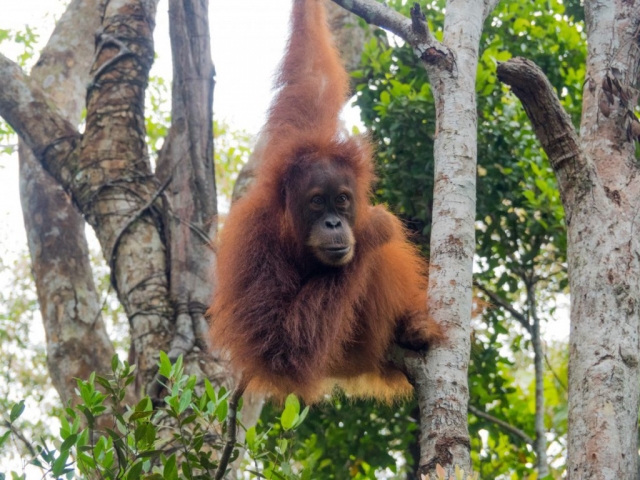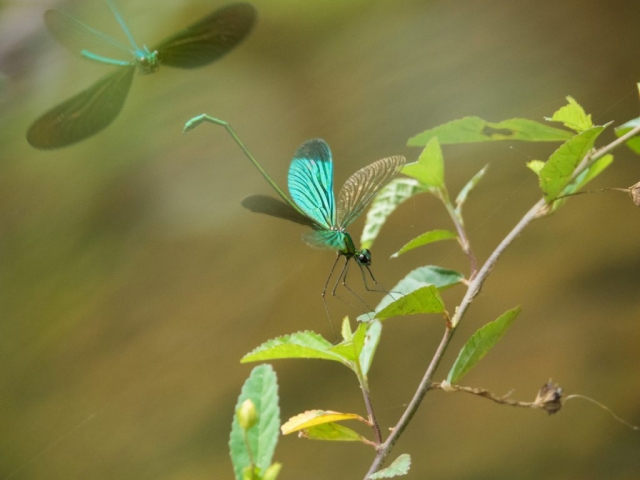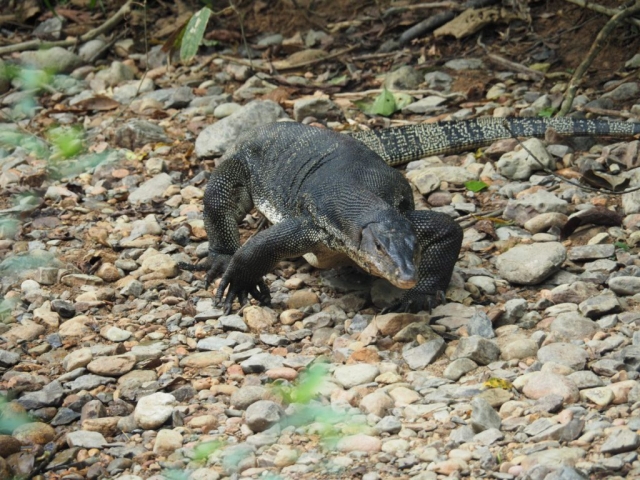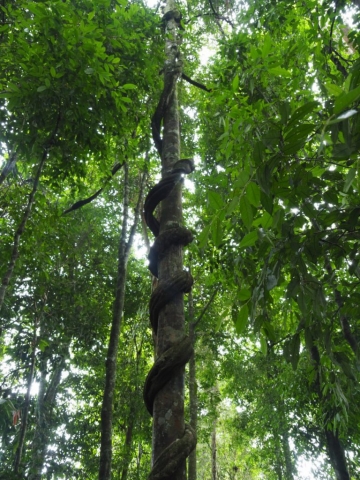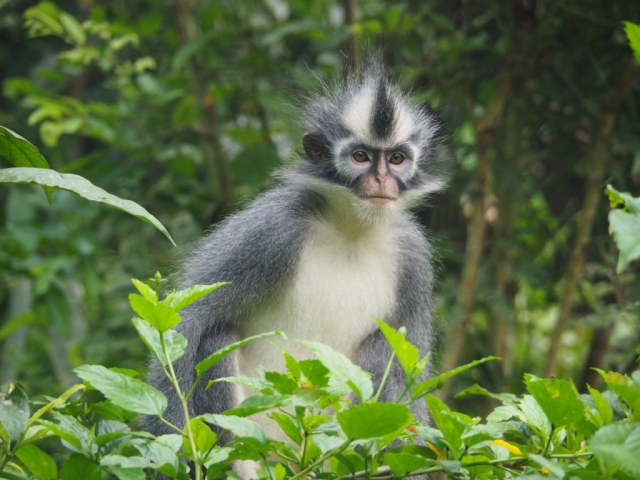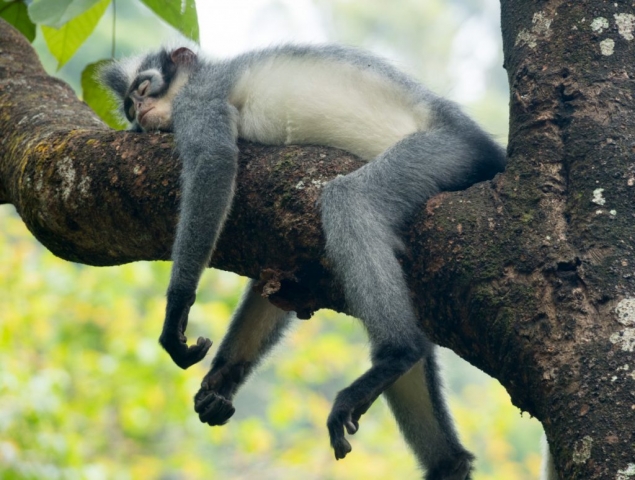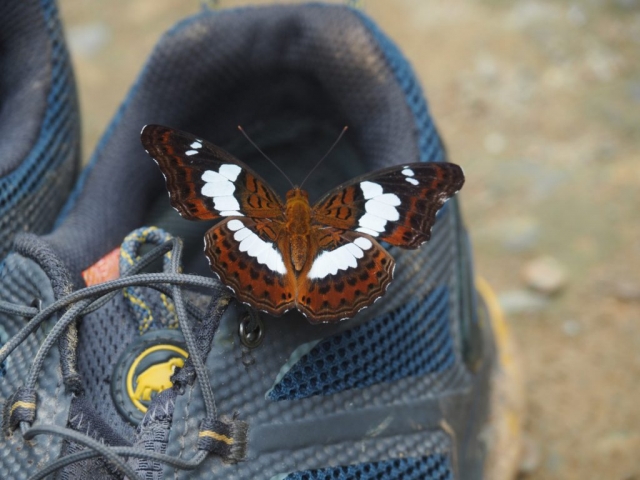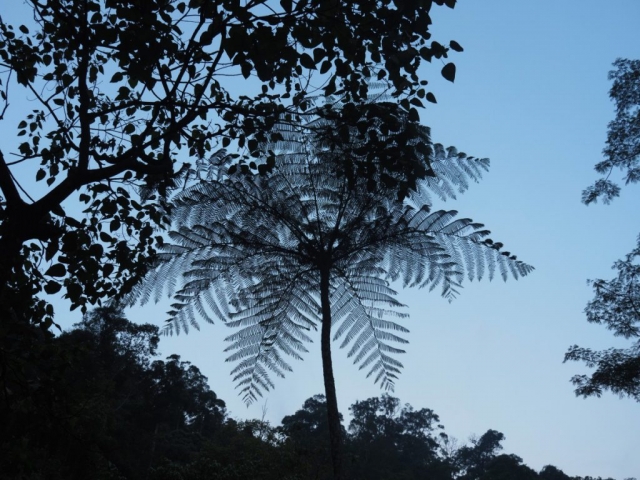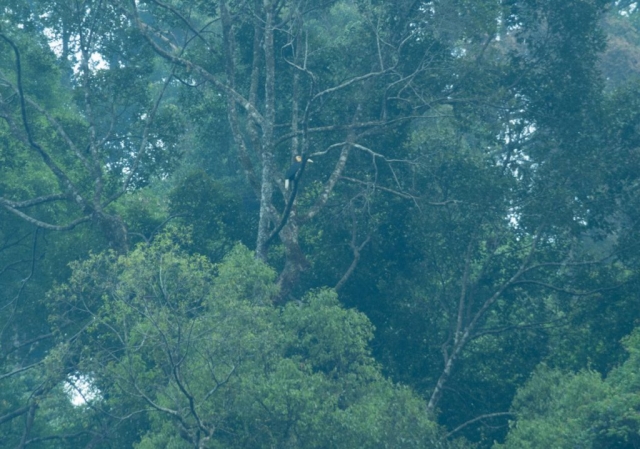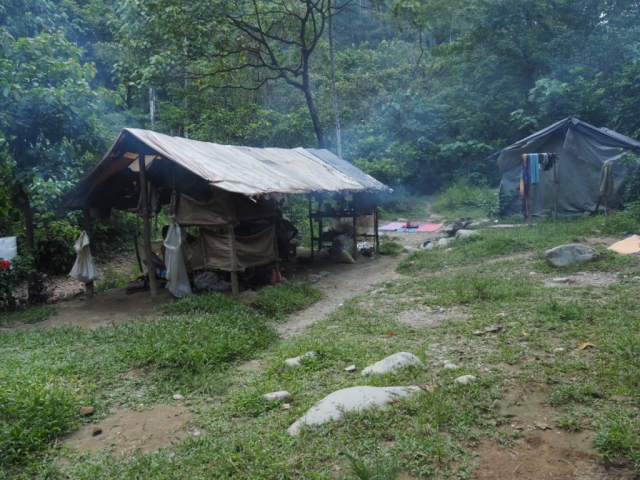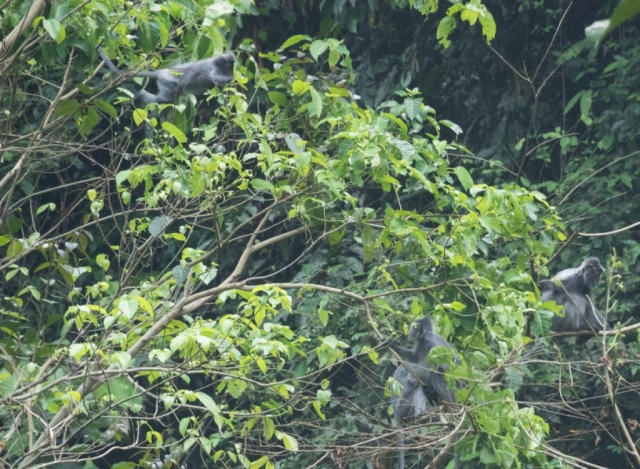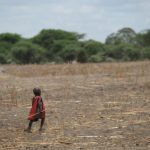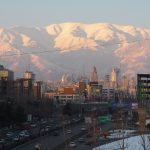Oil palms, oil palms, countless oil palms in rank and file, for many kilometers. By now we recognize the plants immediately, we had already seen many of them in Malaysia.
We’re on Sumatra now. Sumatra – that sounds to us like a documentary about jungles, poisonous spiders and wild orangutans. And of course it’s them we want to see. We go to the edge of Gunung Leuser National Park and book a two-day jungle tour. The next morning we start – the big sweating. The temperatures are not so high with 30 °C, but the humidity is between 75% and 90%. So after only 30 minutes we sweat like in the sauna. Until we reach the national park we see gardens with vegetables, chili, pineapple, rubber trees, papaya and cinnamon trees and again oil palms on our way.
Why always oil palms? Because they are enormously productive and promise high profits. That is why Indonesia and Malaysia have created more and more palm oil plantations in recent decades – the rainforest and peat bogs have had to make way for this. This is by no means climate-neutral. And with the logging also the animal world was pushed far back: the elephants, the tigers, the orangutans. In Malaysia, in an elephant rehabilitation center, we have seen the animals being resettled in national parks. Where elephants meet humans and palm oil plantations, they are sedated with anesthetic syringes, then they are taken by truck or boat and far away in a national park they are woken up again and released.
Also here in Gunung Leuser National Park there are rehabilitation programs, but not for elephants, but for orangutans. “Orang” means person, “Utan” means forest. And these “forest persons” are genetically extremely close to us, 97% of DNA is identical to ours. They have become a symbol for the fight of nature conservationists against palm oil and pro rainforest. Orangutans only exist on two islands in the world, Borneo and here on Sumatra. And we are lucky, shortly after entering the national park we hear the deep roar of a big male. As it climbs down the tree to us, we get queasy, and we withdraw. Orangutans have infinite power and can crack a human skull like a coconut. On the next trek we meet Jackie and Mina, two orangutan females with their babies, who have been returned to wilderness but continue to seek closeness to humans. They know exactly what they have to do to get the coveted bananas of the guides. Unfortunately, reintroduction to the wilderness didn’t work here. Other tourist groups do countless selfies with the two orangutans, we move on and are rewarded: We meet Thomas leaf monkeys and black siamang. I really wanted to see the Thomas leaf monkeys, they only exist here on Sumatra and they have a similar hairstyle to Matthias.
In the evening in the camp we are lucky and see Silver leaf monkey and from far away a hornbill. Chef Alan prepares a delicious dinner. Fireflies buzz through the sky at nightfall. We sit around the campfire for a while with our guide and another couple until we get tired. On extremely hard ground and thin yoga mats we suffer through the night. When the sun finally rises, we go to the creek to wash ourselves, but we are not the first. Big monitor lizards have already bathed their claws and are sunbathing at the edge, a few macaques are jumping in between.
For breakfast we are again having a delicious meal and get even more visitors – from Thomas leaf monkeys. They’ve learned that people always have food in the kitchen in the morning. First sharp observation, then jump from the tree, off into the kitchen and specifically steal the toast and the omelet – within two seconds. So we as visitors also have an influence on the jungle. In this small area, where the treks go, in any case. If that were to be prevented, tourism would have to be banned completely. On the other hand, we also finance the national park administration with our trek.
We pack our things and go to one last lookout. A teenager orangutan is already sitting there. And he shows us where to find water in the jungle: from plant stems. Our guide thinks we’re lucky. We have seen so many different animals in the jungle, such a beautiful flora, hills and mountains with waterfalls. Hard to imagine rainforest being wiped for palm oil. You can’t blame the Indonesians and Malaysians for wanting something from the big cake. The demand for palm oil is endless. Besides India and China, we, in the industrialized countries, use palm oil for our fried foods, our Nutella, our biodiesel and our cosmetic products.
